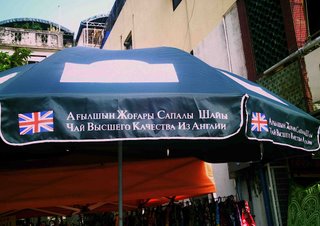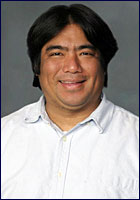1956: Budapest is rising
This is not only the 50th anniversary of Hong Kong Baptist University; it is also the 50th anniversary of the famous 1956 uprising of the Hungarian people against the Soviets.The past two days there have been talks on the HKBU campus by Istvan Darvasi and Istvan Szerdahelyi, both from Hungary, talking about the future of Hungary and of Hong Kong. The relevance of Hungary to the future of Hong Kong may come as a surprise to some, until you hear the following.
In the aftermath of World War II, Hungary ended up under occupation by the Soviets. The Soviet Union installed a communist government loyal to the Soviets to take power in Hungary. On 23 October of 1956, Hungarians revolted, marching on Budapest. The Hungarian communist government quickly made some drastic changes and soon, the revolutionaries were involved in reinventing Hungary. For a time, it seemed that Hungary would leave the Warsaw Pact and drop its communism. But after a few weeks, in November of 1956, the Soviets came in with tanks and legions of troops, and defeated the would-be revolutionaries, executing many.
Where was the West? This seems to be a controversial question. Istvan Szerdahelyi suggests that perhaps the US did not want to fully come out and support the revolution publicly, since it would taint the new government as perhaps a puppet of the US.
But the revolt was not a total failure--the Communist government of Hungary began to realize that there was a line somewhere they could not cross, or there would be another revolution. They convinced the Soviets to allow them to allow some kinds of freedoms. For many years, Hungary was the only Warsaw Pact nation that allowed travel to other places in Europe (I always had wondered why people fleeing East Berlin were always going to Hungary to emigrate). There was less collectivization, and more individual freedom. Eventually, the government began offering more and more services and wealth, so that people would be more content with the government. It was Communism Lite.
In 1989, Soviet Premier Gorbachev indicated that the Soviet Union would no longer use the Soviet Army to enforce communism in Warsaw Pact countries. In other words, if 1956 were to happen again, he would send no troops. Hungary, then other eastern bloc countries, quickly abandoned communism, and went to a multiparty democracy, with full private property rights and a free market economy.
In the years up to 1989, China was abuzz with Hungary. During this time period, China was looking to make free market reforms, but without giving up the one-party control, and Hungary was a model. Until 1989. Then suddenly it became dangerous to talk about Hungary--surely they wouldn't want a multiparty democracy, right?
It's always hard at these well-publicized meetings to discern people's true views. But I wonder if there was a suggestion that Hungary's transformation in 1989 was a model for what might come next in China. China often worries about the slide into chaos if government control is not absolute. And yet, Hungary made the transition peacefully and in an orderly fashion. It wasn't without some economic pains--the government had been outspending its tax base to maintain loyalty to it, and it was now no longer being subsidized by the Soviets. And recent events (the scandal of who knew what about overly-optimistic economic reports leading up to the elections) show that there are still problems with openness of government. But the real test will be what happens as a result--will the critics be silenced, or will those in power have to suffer the consequences?
One interesting comment, by a discussant today: he noted that in Eastern Europe, the word "democracy" carries with it a notion of pride in one's nation, since it opposes the conquest by the Soviet Union. By contrast, he said, in Hong Kong, democracy is seen as an import from America, and thus, national pride tends to push away from "democracy".
This is the first I heard of such a situation. HKBU has a "democracy club", which televised protests at the WTO against human rights violations in China. Other than that I have never heard Hong Kong people talk politics. So I don't know what to make of the discussant's comment. Is this really how Hong Kong people think about democracy?
They've never had it, of course. Sometimes we Americans think the Hong Kong people were part of the democratic world under Britain, but of course, they were a colony then, and couldn't elect their own leaders. Now they're under China and still don't elect their own leaders.
The title of this post, by the way, comes from the musical "Chess". Check it out. It's awesome.


